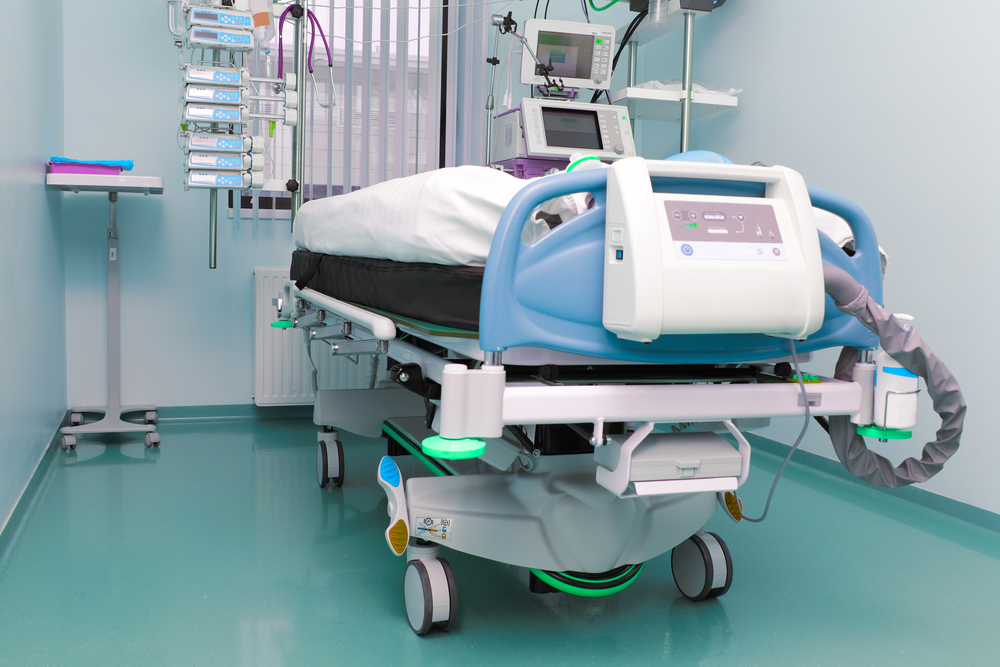India may face a shortage of intensive care unit beds and ventilators for Covid-19 patients for about four months from mid-November even with strong protective public health measures, a government-supported forecasting exercise has indicated.
It has suggested the March-May nationwide lockdown and continued public health measures would reduce the demand for ICU beds and ventilators by 83 per cent, but the demand would still exceed supply during the peak influx of patients.
The demand for ICU beds and ventilators could be met until November’s first week under public health measures maintained at 60 per cent effectiveness, according to the health researchers who conducted the study with support from the Indian Council of Medical Research (ICMR).
Beyond that week, the available ICU beds will be inadequate for 4.6 months and ventilators for 3.9 months, the researchers have said.
Independent critical-care medicine specialists have, however, cautioned that shortages of specialists and appropriately skilled nursing staff could render the management of patients challenging long before November.
The ICMR study is among the first to estimate the costs of managing the coronavirus pandemic and the response needed from the healthcare system.
It has estimated that India would need to spend around Rs 25 lakh crore, or nearly five times the Centre’s health budget, to combat the epidemic through its course. The amount is 166 times the Rs 15,000 crore pledged by the Centre to address Covid-19.
But a senior health economist argued that this calculated cost was an economic valuation and not the required financial allocation because the government would already be paying for pandemic control activities.
The Union health ministry had said on June 9 that the 3,300 Covid-19 hospitals and health centres — public and private — across India collectively had nearly 32,000 ICU beds, 120,000 oxygen-supported beds and 21,500 ventilators. The Centre, the ministry said, has ordered 60,848 more ventilators.

India on Saturday recorded 11,458 new Covid-19 cases, a fresh highest-ever overnight increase, raising the confirmed cases to 308,993, among whom 145,779 are under medical supervision, 154,330 have recovered and 8,884 have died.
The health ministry has said around 3 per cent of active patients need ICU beds, less than 3 per cent need oxygen support and only 0.45 per cent need ventilators.
While the study raises the spectre of India running out of critical care facilities for Covid-19 patients during the epidemic’s peak, the researchers said it also points to the strategies needed to reduce the demand for ICU beds and ventilators to manageable levels.
“The lockdown and containment efforts have been very effective — India has shown that it can delay the peak as long as we want,” said Narendra Arora, senior physician and chair of an ICMR task force on Covid-19, who led the study.
The study has estimated that the March-May lockdown helped reduce the number of infections by up to 97 per cent. Continued public health measures at 60 per cent effectiveness would lower infections at the peak by 70 per cent and the total number of infections through the duration of the epidemic by nearly 30 per cent, it says.
A 60 per cent effectiveness level means 60 per cent of all people wear face masks, adopt hand hygiene and maintain adequate physical distancing; the elderly and children stay home; and the health authorities continue testing, contact-tracing and isolation of positive patients.
The study has suggested that if 80 per cent of those infected can be tested, detected and isolated within three days of their becoming infected, the epidemic’s spread could be slowed to a trickle, a study team member said.
“We still have opportunities to augment our healthcare infrastructure,” said a senior public health researcher involved in the study who requested not to be named.
“The epidemic is likely to peak in different places at different times — we still have time to create mechanisms to divert resources where they are most needed.”
An independent statistical analysis by researchers in Chennai has suggested that the number of Covid-19 patients who need ICU beds might exceed the existing inventory of around 32,000 beds by early August.
Sitabhra Sinha from the Institute of Mathematical Sciences, Chennai, and his colleagues have suggested the number of active patients in India could reach a million by July-end or early August under the current growth trend of the outbreak.
A demand for ICU beds from 3 per cent of the patients would approach the 32,000 limit.
Shortages of critical-care medicine specialists and nurses could hamper the country’s ability to deliver efficient ICU services to every patient who needs them, said Shikha Panwar, a senior critical-care specialist in Faridabad, Haryana.
“We need an army of healthcare workers to monitor the country’s growing numbers of Covid-19 patients in ICUs under the guidance of trained specialists,” Panwar said.
“The government needs to prepare to tackle the coming tsunami of patients.”











